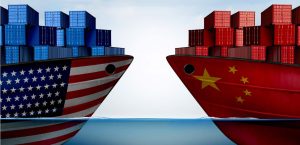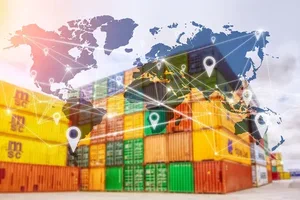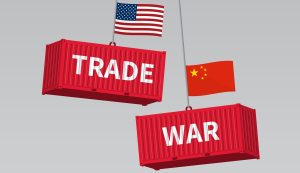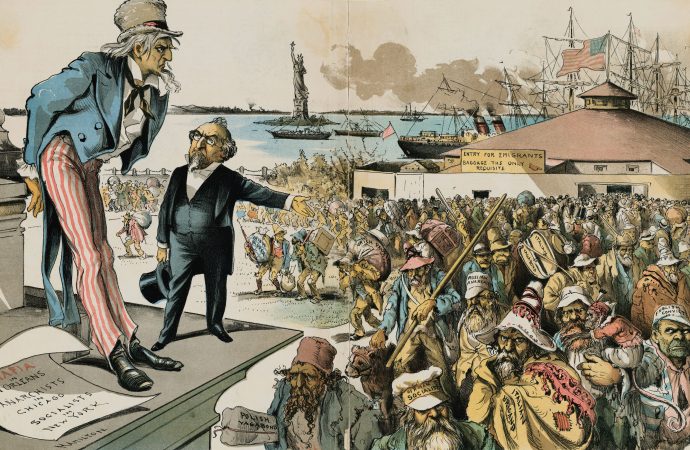Impact on Global Supply Chains Trade Wars disrupt global supply chain efficiency. These conflicts invariably introduce a level of uncertainty and instability that hampers the seamless operation of international trade networks. Companies dependent on cross-border transactions face delays, increased administrative burdens, and logistical challenges, all of which contribute to inefficiencies. The ripple effect of disrupted
Impact on Global Supply Chains

Image by : Yandex
Trade Wars disrupt global supply chain efficiency. These conflicts invariably introduce a level of uncertainty and instability that hampers the seamless operation of international trade networks. Companies dependent on cross-border transactions face delays, increased administrative burdens, and logistical challenges, all of which contribute to inefficiencies. The ripple effect of disrupted supply chains can be profound, affecting not only the availability of raw materials and finished goods but also the overall production timelines and quality of products. The intricate web of global supply chains means that a disruption in one region can have far-reaching consequences, leading to a cascade of inefficiencies that are difficult to mitigate.
Trade Wars increase costs in global supply chains. As tariffs and other trade barriers are erected, the cost of importing and exporting goods rises. These additional costs are often passed down the supply chain, resulting in higher prices for manufacturers, distributors, and ultimately, consumers. Increased costs can stem from tariffs on raw materials, intermediate goods, and finished products, leading to a rise in production costs and a decrease in profit margins. The need to find alternative suppliers or routes to circumvent trade barriers further adds to the expenses, making global supply chains more costly and less predictable.
Tariff Implications on Domestic Markets
Trade Wars escalate tariffs, impacting domestic market prices. As countries impose tariffs on each other’s goods, the immediate effect is an increase in the prices of imported goods. This price hike can lead to inflationary pressures within domestic markets, as businesses and consumers face higher costs for goods that were previously more affordable. The increased cost of imports can also lead to a reduction in consumer spending power, as households adjust their budgets to accommodate higher prices. Additionally, businesses that rely on imported materials for production may find it necessary to increase their prices to cover the additional costs, further contributing to inflation.
Tariff hikes from Trade Wars disrupt supply chains and costs. The imposition of tariffs can compel businesses to re-evaluate their supply chains, seeking alternative sources for materials and products to avoid the additional costs. This reconfiguration can be both time-consuming and expensive, as businesses may need to establish new relationships with suppliers, negotiate new contracts, and potentially invest in new infrastructure or technology to accommodate the changes. The disruption caused by tariff hikes can lead to inefficiencies and increased operational costs, as businesses navigate the complexities of a shifting trade landscape.
Shifts in Trade Alliances

Image by : Yandex
Trade Wars prompting new regional trade alliances. As traditional trade relationships are strained by tariffs and other barriers, countries and businesses may seek to form new alliances to secure their economic interests. These new regional trade agreements can help to mitigate the impact of trade wars by providing alternative markets and sources of goods. The formation of such alliances can lead to a realignment of global trade patterns, as countries prioritize partnerships that offer stability and mutual benefits. These shifts can also foster greater regional integration and cooperation, as countries work together to navigate the challenges posed by trade wars.
Economic policy shifts due to Trade Wars. The uncertainty and instability brought about by trade wars can prompt governments to re-evaluate their economic policies and strategies. In response to the challenges posed by increased tariffs and disrupted supply chains, countries may implement new policies aimed at protecting domestic industries, encouraging local production, and diversifying trade relationships. These policy shifts can have long-term implications for the global economy, as countries adapt to a new trade environment and seek to minimize their vulnerability to future trade conflicts.
Currency Fluctuations and Trade Imbalances
Trade Wars exacerbate currency fluctuations and trade imbalances. The imposition of tariffs and other trade barriers can lead to significant volatility in currency markets, as investors react to the uncertainty and potential economic impacts of the trade conflict. Currency fluctuations can affect the competitiveness of exports and imports, as changes in exchange rates alter the relative prices of goods and services. This volatility can contribute to trade imbalances, as countries struggle to maintain stable trade flows amid the shifting economic landscape. The uncertainty and instability caused by trade wars can also deter investment and economic growth, further exacerbating trade imbalances.
Currency fluctuations impact trade balances during Trade Wars. As exchange rates fluctuate in response to trade conflicts, the relative prices of exports and imports can change dramatically. A weaker currency can make a country’s exports more competitive, potentially boosting trade balances, while a stronger currency can have the opposite effect. However, the unpredictable nature of currency fluctuations can make it difficult for businesses to plan and execute their trade strategies effectively. This uncertainty can lead to reduced trade volumes and increased costs, as businesses seek to hedge against currency risks and navigate the complexities of the global market.
Government Subsidies and Support Measures

Image by : Yandex
Government subsidies mitigate trade wars’ economic impact. In response to the economic challenges posed by trade wars, governments may implement subsidies and other support measures to protect domestic industries and mitigate the impact on businesses and consumers. These subsidies can take various forms, including direct financial assistance, tax breaks, and grants for research and development. By providing targeted support to affected industries, governments can help to offset the additional costs imposed by tariffs and other trade barriers, ensuring that businesses remain competitive and viable in the face of economic uncertainty.
Support measures counteract negative outcomes of trade wars. In addition to subsidies, governments may implement a range of other support measures to counteract the negative effects of trade wars. These measures can include efforts to promote export diversification, enhance infrastructure and logistics capabilities, and provide training and resources to help businesses adapt to the changing trade environment. By taking a proactive approach to addressing the challenges posed by trade wars, governments can help to ensure that their economies remain resilient and capable of weathering the storm.
Regulatory Changes and Compliance
Impact of trade wars on regulatory compliance requirements. The imposition of tariffs and other trade barriers can lead to changes in regulatory requirements, as governments seek to protect their domestic industries and ensure compliance with new trade policies. These changes can create additional administrative burdens for businesses, as they navigate new documentation requirements, customs procedures, and compliance standards. The increased complexity of regulatory compliance can lead to higher costs and delays, as businesses invest time and resources in understanding and adhering to the new rules.
Adapting to new economic policies amid trade wars. As trade wars prompt shifts in economic policies, businesses must adapt to the new landscape to remain competitive and compliant. This adaptation can involve a range of strategies, including diversifying supply chains, investing in new technologies, and developing new market opportunities. By staying agile and responsive to the changing economic environment, businesses can mitigate the risks and challenges posed by trade wars and position themselves for long-term success.
Long-term Economic Growth Projections

Image by : Yandex
Impact of Trade Wars on GDP growth projections. The economic uncertainty and instability caused by trade wars can have significant implications for GDP growth projections. As businesses face increased costs, disrupted supply chains, and reduced consumer spending power, overall economic growth can slow. The long-term impact of trade wars on GDP growth will depend on the duration and severity of the conflict, as well as the effectiveness of government policies and support measures in mitigating the negative effects.
Long-term effects of Trade Wars on economic stability. The prolonged nature of trade wars can lead to lasting changes in the global economic landscape, as countries and businesses adapt to new trade patterns and policies. These changes can have both positive and negative implications for economic stability. On one hand, new trade alliances and diversified supply chains can enhance resilience and reduce vulnerability to future conflicts. On the other hand, the uncertainty and volatility associated with trade wars can deter investment and hinder long-term economic growth. The ultimate impact on economic stability will depend on the ability of countries and businesses to navigate the challenges and opportunities presented by the evolving trade environment.
















